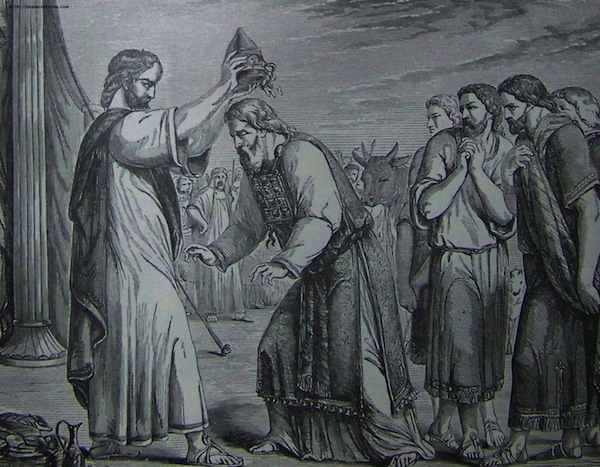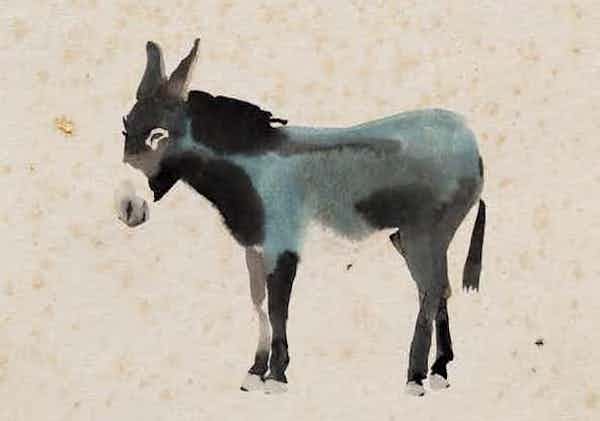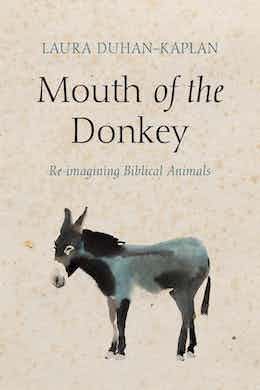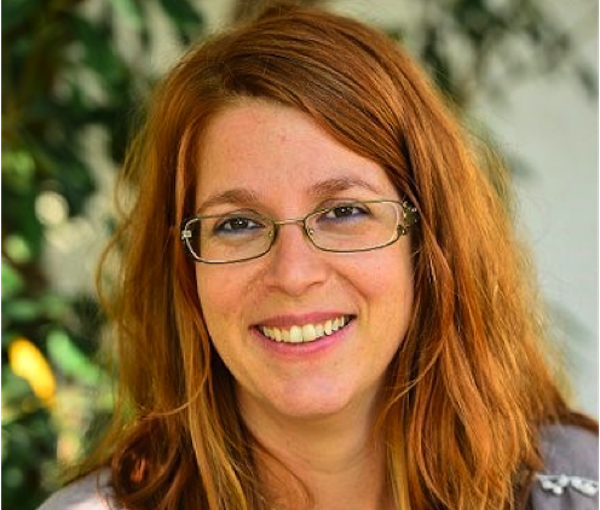Co-directors of Chabad of the Tri-Cities Rabbi Mottel and Nechama Gurevitz with their children. (photo from Tri-Cities Chabad)
Since he arrived just under two years ago, Rabbi Mordechai (Mottel) Gurevitz has had a very active and wide-ranging schedule. He’s been organizing programs and events and, most importantly, building community in the Tri-Cities (Coquitlam, Port Coquitlam and Port Moody).
Gurevitz, co-director of Chabad of the Tri-Cities, gave the Independent a few examples of the growth he has witnessed. This year’s Passover seder brought in nearly 50% more attendees compared to 2023. There was a similar increase in attendance for a Ten Commandments reading and ice cream in the park gathering during Shavuot.
For Lag b’Omer on May 26, the largest Jewish event in Tri-Cities history was held at Rocky Point Park. Hundreds of people came out in the rain for a day filled with music, featuring Vancouver band Tzimmes, dancing, art, a marketplace, a magic show, bouncy castles and, of course, mouthwatering food.
Gurevitz, a Brooklyn native, arrived in the Tri-Cities in November 2022 with his wife, Nechama, who hails from Portland, Ore. In a recent interview, he told the Independent that he adores the region and is very happy and amazed to see the interest in the Jewish community for Jewish activities – and, he added, he regularly has to replenish his supply of mezuzot.
“We feel grateful for where we live,” he said. “It is such a beautiful, growing community. Geographically, it is a beautiful place with beautiful people. I feel privileged to be in this position to lead. It is not something I take lightly. I am really happy that we are here.”
The goal of Chabad of the Tri-Cities programming is to raise the Jewish profile and increase the sense of Jewish community in the area, Gurevitz explained. He gets the most joy, he said, when he hears from community members about connections they have made through his efforts, such as two sets of parents arranging a play date for their children after meeting at a Chabad event.
“One of the challenges of the Tri-Cities is that it is geographically spread out. Organically, there is a challenge for a community to grow because people are all over. What we are finding is that, by creating infrastructure, it is blossoming,” he said.
The region’s population comprises people of all ages, and many young families. As a result, there are programs to meet the needs of various demographics, from teen activities to special groups for men and women, in addition to a Hebrew school, weekly Torah classes and Kabbalat Shabbat meals. The programs have been well received, Gurevitz said, and have created a space for people to come together.
“All of these are cogs in the machinery. Each of them is important on its own, but, in the greater picture, what is emerging is a vibrant Jewish community. Jews are hanging out with other Jewish people. There is a place to celebrate our traditions, connect and meet new friends,” Gurevitz said.
On March 10, Tri-Cities Chabad celebrated the milestone of completing a sefer Torah. Along the way, there was great excitement, as members of the community dedicated letters and chapters for the new scroll.
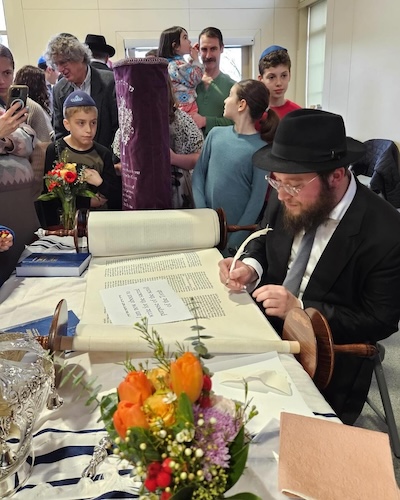
“There is something very unifying about a community writing a Torah,” Gurevitz said. “The energy in the room that day was something so special, with the joy and the celebration and people of all ages kissing the Torah. That was a real monumental event this year.”
Gurevitz, who also teaches at Vancouver Hebrew Academy, jokes that he has two full-time jobs. A typical day might have him teaching in Vancouver in the morning and returning to the Tri-Cities in the early afternoon to have meetings, run programs, prepare for events and reach out to people.
“As a rabbi, I believe our first priority is our fellow Jews’ physical well-being, then we can care for their spiritual well-being. I am being there for people, helping however we can. The part I like most is meeting people and making those connections,” he said.
On July 2, at 7 p.m., Chabad of the Tri-Cities will put together an event to mark the 30th yahrzeit of the Lubavitcher Rebbe, Menachem Mendel Schneerson. Titled An Evening of Inspiration, the event will feature Rabbi Meir Kaplan, leader of Chabad of Vancouver Island.
“Our very existence in the Tri-Cities, a boy from Brooklyn walking around looking like a rabbi in Coquitlam, is to the Rebbe’s credit. We are gathering to pay tribute to the Rebbe. What was unique about him is that he made leaders and empowered individuals,” said Gurevitz, pointing to the 5,000 Chabad centres currently operating in more than 100 countries. “We will reflect on how the Rebbe’s legacy could inspire us to live a more meaningful and purposeful life.”
For more information, visit jewishtricities.com.
Sam Margolis has written for the Globe and Mail, the National Post, UPI and MSNBC.


